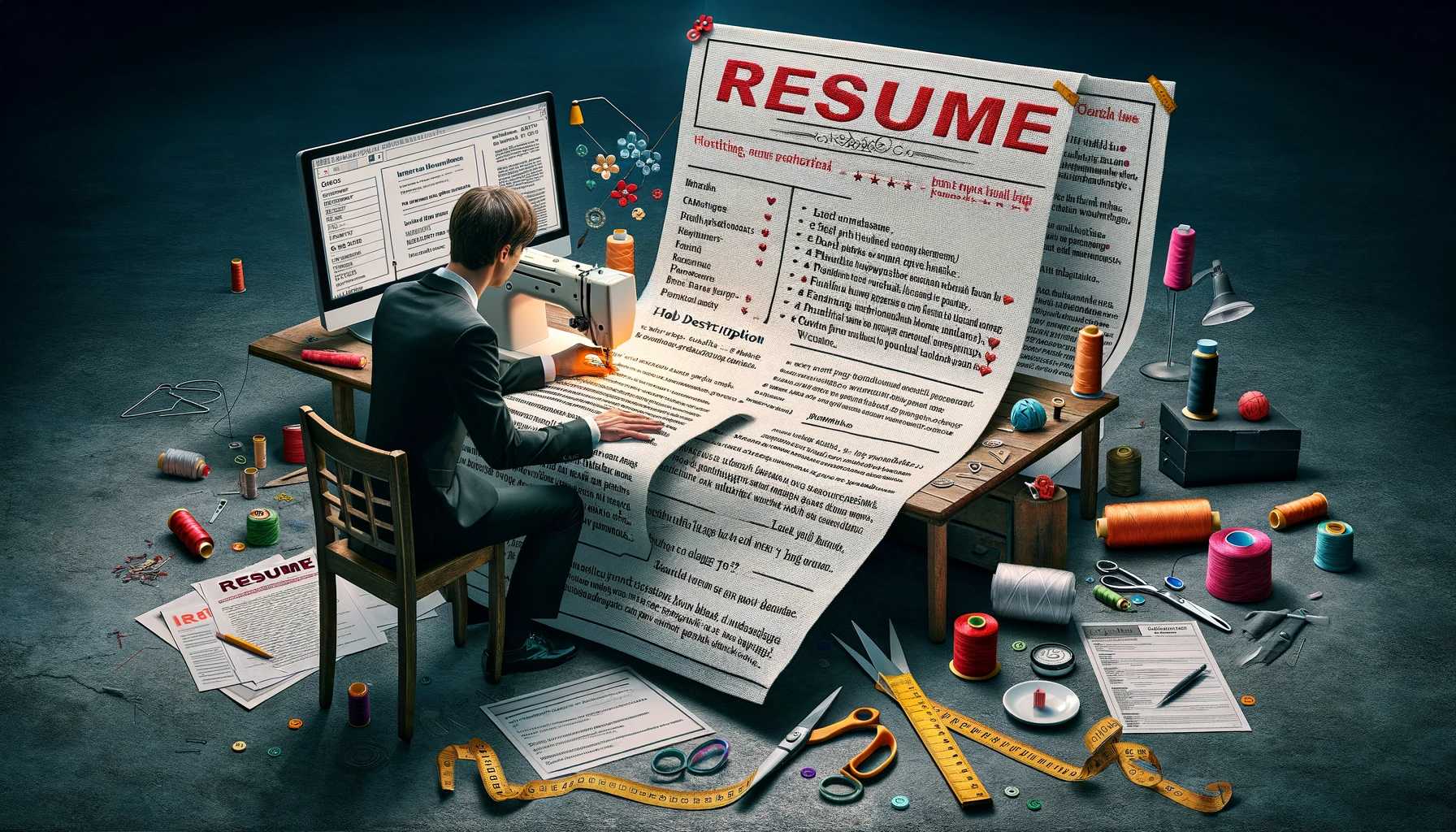The Crucial Art of Tailoring Your Resume to the Job Description
In the vast landscape of job hunting, where every application feels like a shot in the dark, there exists a beacon of hope: tailoring your resume to the job description. It's not just a buzzword thrown around in career advice circles; it's a fundamental strategy that can significantly impact your chances of landing the job of your dreams. So, why is it so important to tailor your resume to the job description? Let's delve into this crucial aspect of resume writing.
First and foremost, think of your resume as your personal marketing tool. It's your opportunity to showcase your skills, experiences, and accomplishments in the best possible light. But here's the catch: every job is different, and employers are looking for specific qualifications and attributes that align with the role they're trying to fill. This is where tailoring your resume becomes paramount.
Imagine you're applying for a marketing position. The job description emphasizes skills like social media management, content creation, and campaign analytics. Now, if your resume showcases your proficiency in these areas, highlighting relevant experiences and achievements, you're already leaps ahead of the competition. However, if your resume reads like a generic template with no mention of these critical skills, you're unlikely to catch the employer's eye.
Tailoring your resume isn't just about parroting back the job description verbatim. It's about understanding the employer's needs and demonstrating how you're the perfect fit for the role. This means carefully analyzing the job description, identifying the key requirements and qualifications, and aligning your resume accordingly.
But how exactly do you tailor your resume to the job description? It starts with a deep dive into the job posting. Pay attention to the language used, the skills and qualifications listed, and any specific requirements mentioned. Then, tailor your resume to mirror these elements as closely as possible.
One effective strategy is to create a "master resume" that includes all your relevant experiences, skills, and accomplishments. This serves as your foundation. From there, you can customize your resume for each application, highlighting the most relevant information based on the job description.
For example, if the job posting emphasizes project management skills, make sure to highlight any relevant projects you've led or contributed to in your work experience section. If the employer is seeking candidates with specific technical skills, such as proficiency in a particular software or programming language, ensure that these skills are prominently featured in your skills section.
Additionally, don't overlook the importance of keywords. Many employers use applicant tracking systems (ATS) to screen resumes based on specific keywords and phrases. By incorporating relevant keywords from the job description into your resume, you increase the likelihood of passing through the initial screening process.
However, tailoring your resume goes beyond just tweaking the content. It also involves customizing the format and design to align with the company's culture and industry norms. For instance, if you're applying for a creative role at a design agency, you may opt for a more visually appealing and unconventional resume format. On the other hand, if you're applying for a corporate position, a clean and professional layout may be more appropriate.
Furthermore, tailoring your resume demonstrates your genuine interest in the role and company. It shows that you've taken the time to understand the employer's needs and have made an effort to present yourself as the ideal candidate. This level of attention to detail and personalization can leave a lasting impression on hiring managers and set you apart from other applicants.
Moreover, tailoring your resume doesn't end with the initial customization. It's an ongoing process that may require further adjustments as you progress in your job search. As you gain more insights into the company and its culture through research and networking, you may uncover additional ways to tailor your resume to better align with the organization's values and objectives.
For instance, you may discover specific projects or initiatives the company has undertaken that resonate with your own experiences and interests. Incorporating references to these aspects in your resume can demonstrate your genuine enthusiasm for the company and your alignment with its goals.
Additionally, tailoring your resume can extend beyond just the content and format. It also involves crafting a compelling narrative that effectively communicates your value proposition to the employer. This means connecting the dots between your experiences, skills, and accomplishments and how they uniquely qualify you for the role.
One effective way to achieve this is through storytelling. Instead of simply listing your job duties and responsibilities, use concrete examples and anecdotes to illustrate your impact and contributions. For instance, rather than stating that you "managed a team of marketing professionals," you could highlight a specific project where you successfully led a cross-functional team to launch a new product, resulting in a significant increase in sales.
Furthermore, tailoring your resume can help you address any potential red flags or gaps in your employment history. If you're transitioning to a new industry or have periods of unemployment, strategically tailoring your resume can emphasize transferable skills and experiences that are relevant to the target role while downplaying less relevant information.
It's important to remember that tailoring your resume is not about embellishing or falsifying information. It's about presenting your qualifications and experiences in the best possible light while remaining truthful and authentic. Hiring managers are adept at spotting inconsistencies and exaggerations, so it's crucial to maintain integrity throughout the resume-writing process.
In essence, tailoring your resume is not just a recommendation; it's a necessity in today's competitive job market. It's the difference between blending into the crowd and standing out as a top contender. So, the next time you're applying for a job, don't underestimate the power of customization. Take the time to tailor your resume to the job description, and watch as your chances of success soar. After all, in the game of job hunting, precision and personalization are the ultimate keys to victory.









